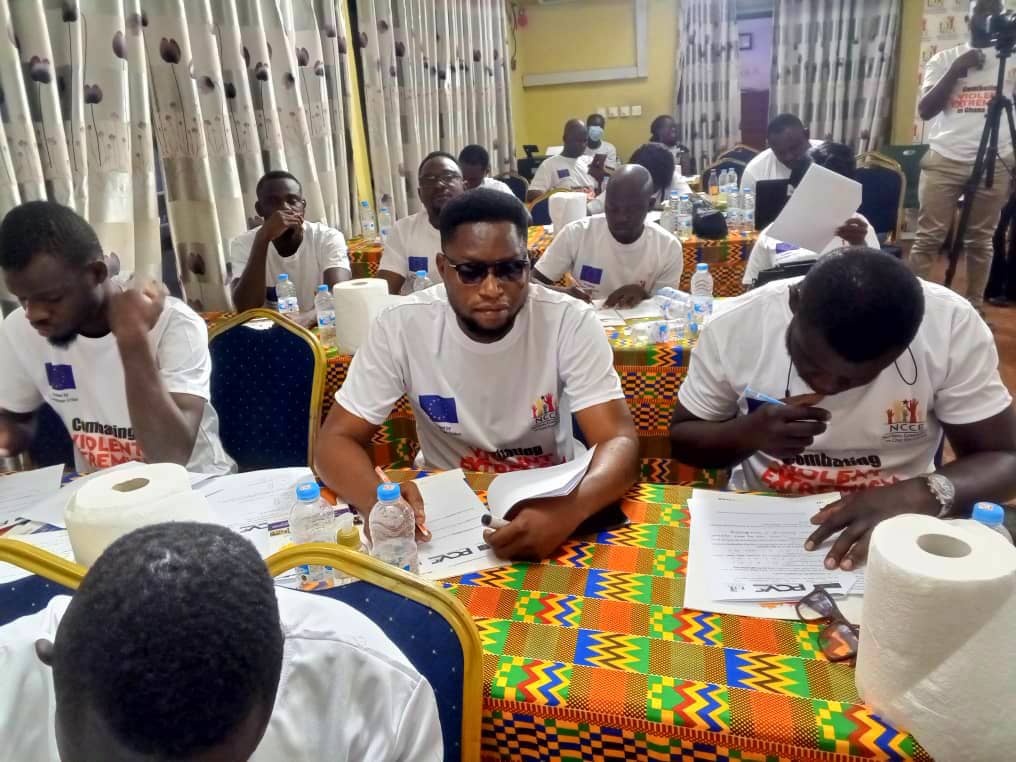By Gilbert Azeem Tiroog
Tamale, Nov 9, GNA – Ms Kathleen Addy, the Chairperson of the National Commission for Civic Education (NCCE), has called on media practitioners to verify information before publication, especially issues concerning violent extremism.
She noted that the media played a crucial role in combating violent extremism and promoting peace, and its ability to be factual in its report would shape the understanding of citizens and enable them to counter activities of violent extremism.
“If the media fails to properly convey the facts, all the efforts of this project can be undermined. Our goal is not just to report, but to ensure that Ghanaians fully understand the threats we face and are able to act accordingly”, she stated.
The Chairperson made the remarks when she addressed media practitioners drawn from the five regions of the North at a media advocacy workshop in Tamale as part of the ongoing Preventing and Containing Violent Extremism (NCCE) project funded by the European Union.
It was held on the theme: “Effective Communication for Sustenance of the PCVE Project”.
Ms Addy further highlighted the need for Ghanaians to reject violence in all its forms, stressing that it served no purpose in the political process.
“Violence does not win elections; it only destroys lives and communities, and as citizens, we must encourage a culture of peaceful dialogue and focus on policies, not conflict”, she added.
Reverend Father Clement Aapengnuo, the Country Director, Coginta-Ghana, presenting on the role of reflective practice in organisations working on preventing violent extremism, encouraged journalists to be guarded and attach sensitivity in reporting on conflict situations in order not to cause more harm and escalate tensions.

Retired Commissioner of Police (CoP), Timothy Yoosa Bonga, emphasised the importance of collective responsibility in ensuring the security of the nation.
He highlighted that the media, as the fourth state, played a crucial role in fostering trust between the security forces and the public and must ensure that their reports promoted⁴ee collaboration and understanding between the two.
That, he said, would help bridge the gap between law enforcement agencies and civilians and create a more cohesive and effective approach to national security.
Over the past 18 months, the NCCE under the PCVE project has been engaging communities, particularly women and youth groups, to foster cordial relationships between them and the security agencies and empower them to build resilience against violent extremism.
It had also engaged political parties under its Inter-Party Dialogue Committee meetings to intensify the need for peace before, during, and after the elections, to maintain the democratic gains of the country.
GNA